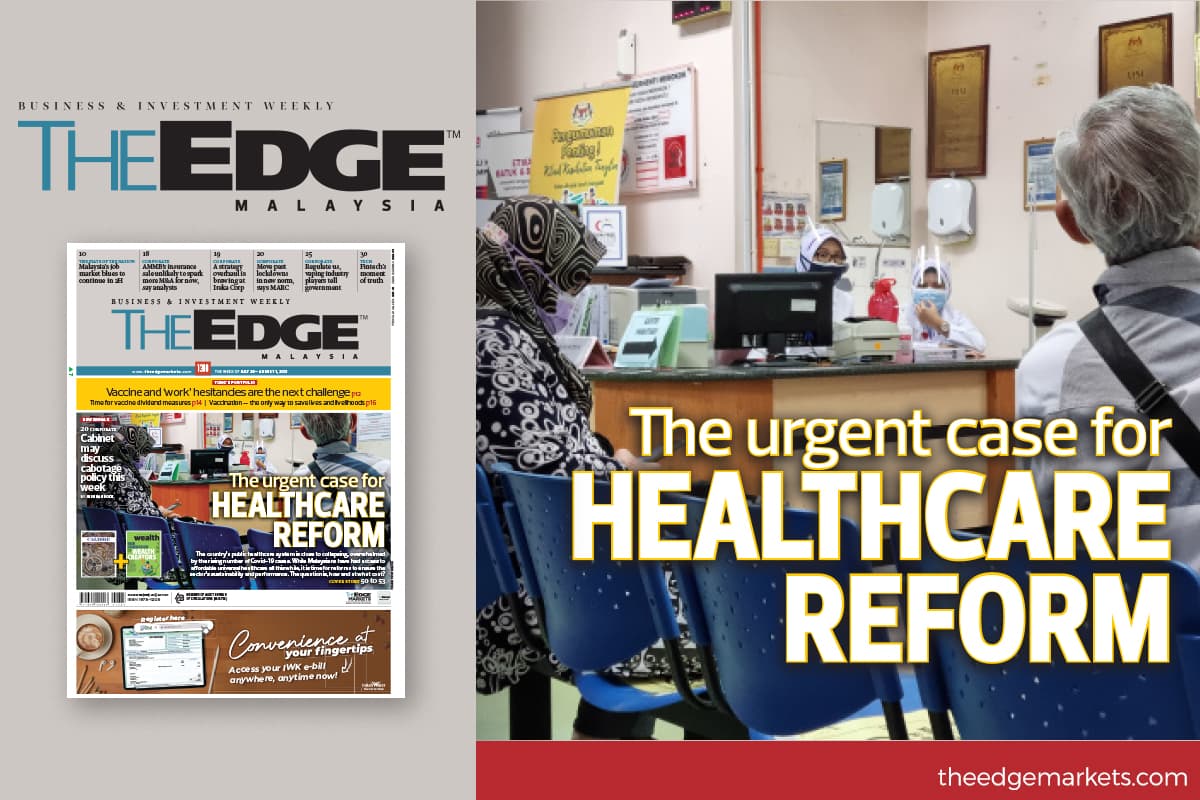
KUALA LUMPUR (July 24): The Covid-19 pandemic has highlighted flaws in the public healthcare system as the many positive cases have placed enormous strain on government hospitals and facilities.
Meanwhile, junior doctors on contract employment are protesting against the lack of career development paths and employment certainties with many planning a work strike or "hartal" next Monday (July 26).
How did we get to this point, and most importantly, how do we reform the public healthcare system to prepare for the next pandemic?
The Edge spoke to a number of public and private healthcare experts to get insights into the state of the current system and whether it has been underfunded all these years. We also listened to their recommendations on needed reforms for the public healthcare system.
Datuk Professor Dr Adeeba Kamarulzaman, Professor of Medicine and Infectious Diseases at University of Malaya, said that Malaysia's government healthcare spending is still relatively low, even compared to other upper-middle income countries. Malaysia is spending around 2% of its annual gross domestic product (GDP) on public healthcare annually, compared to some countries within the same group that spent 7% to 8% of their annual GDP on public healthcare.
However, if the government were to reform the public healthcare system, how would it fund it?
Public healthcare expert Dr Yap Wei Aun said that there is no one best way to fund healthcare as it depends on the values of the country and its socioeconomic conditions, labour market and institutional context.
Malaysia first needs a true national consensus on the objectives of the health system — particularly, are equity, effectiveness and efficiency truly core values backed by real commitment or just aspirational buzzwords? If they are real, increasing public financing is critical as it allows for broad pooling of resources, from the rich to the poor and the healthy to the sick, and the redirection of resources towards the most effective health interventions, including preventive care.
Funding the public healthcare system through increasing general government revenues (taxation and other revenue sources), as well as reprioritising these from other sectors towards health or both allow for the broadest possible pooling, said Yap.
However, can the public stomach an increase in taxation or a mandatory health insurance premium contribution? Does the government have the political will to enact and enforce a reform of the public healthcare service?
Read the story in the July 26 issue of The Edge Malaysia weekly.
Save by subscribing to us for your print and/or digital copy.
P/S: The Edge is also available on Apple's AppStore and Androids' Google Play.